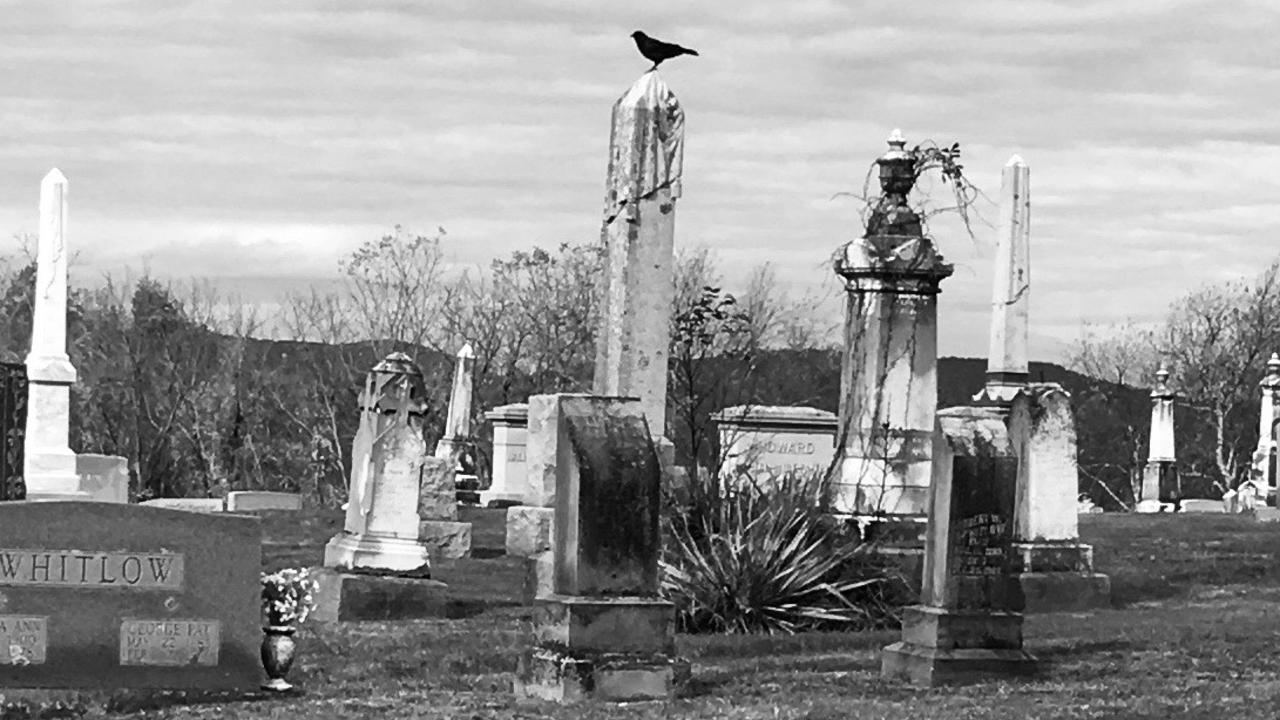Cemetery Run
May 03, 2018
Several years ago, my wife and I sold the farm where we raised fruit, vegetables, chickens, pets, our two sons, and more than a few eyebrows. Our boys, now grown and gone, we moved to town.
Days later, I came within a few inches of being hit by a car on my daily run.
The irony was obvious. Just a few days after we’d sold it, I nearly bought the farm.
Our homestead had been at the end of a long, lonely dirt road. Overweight and approaching age 50, I’d decided to regain control of my health. A daily one-mile walk increased to a five-mile run over several months. I lost 75 pounds.
To maintain my routine when we moved, I mapped out a run through town. Since it’s the law to yield to pedestrians at crosswalks, I assumed my route was safe. But the close call I experienced revealed this wasn’t the case.
I couldn’t imagine not getting my daily run in. Not only was it now part of my identity, but my life is busy and stressful. My running ritual isn’t just about exercising my body and keeping my weight down. It clears my head and helps me maintain my sanity.
What to do?
I decided that to avoid ending up in the graveyard, I’d have to drive to it to get my daily exercise.
The cemetery is located at the highest point in town. The Blue Ridge Mountains, often poking through a foggy mist, are visible in the distance.
The acreage is beautifully landscaped with fruit trees, flower patches, and secluded sitting areas.
Beyond the tombstones lay fields and farms. I often spot a deer and hear cows lowing in the distance.
In addition to the beauty of nature, of course, gravestones dot the lawn. The oldest of them predate the Civil War.
Why share this personal anecdote about nature and death as this handbook winds up?
Being surrounded by the beauty of nature and reminders of my mortality helps me embrace the ancient practice of memento mori: “remember, you die.”
Embracing that life ends is essential for cultivating acceptance and equanimity in my pursuit of living well while engaged in the difficult work of making a difference.
Life is a gift. It doesn’t matter where you believe it comes from. Accepting that life is a gift acknowledges that it is both yours and not yours
To contemplate your death is to also consider what it means to be truly human and truly happy – and a call to action to strive to be more of both.
You and I can’t know how long the gift of life is ours. And it is that uncertainty that allows us to make meaning and find the motivation to live well and live for others while we can.
What’s death for?
That it ends is at the heart of life’s value. The worth of your life is measured by the contribution you make while you are able. The quality of your contribution is determined by the content of your character and the extent of your effort.
Legacy isn’t the monuments and money you leave behind. It’s the difference you make with and for others today.
Meditate on your death. Then take whatever you have left and live it on purpose.
This is an excerpt from Onward: Where Certainty Ends Possibility Begins.The audio comes from the audiobook edition available on Audible.
Scott Perry, Chief Difference-Maker at Creative on Purpose
If what you just read resonated, please share it with a friend.

